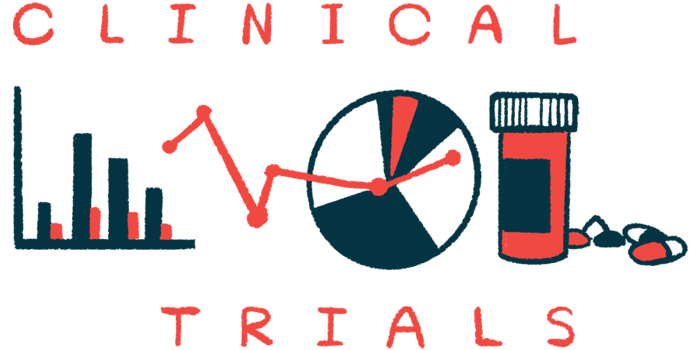NurOwn Found Safe, Shows Promise in Phase 2 Trial for Progressive MS
Stem cell therapy leads to improvements in walking ability, cognition, vision
Written by |

NurOwn, a stem cell therapy being developed by BrainStorm Cell Therapeutics, showed a good safety profile among people with progressive forms of multiple sclerosis (MS) in an open-label Phase 2 clinical trial, according to new data.
The data show the experimental therapy also was associated with promising effects on patients’ walking ability, finger dexterity, cognition, and vision.
This trial “provides preliminary evidence of NurOwn’s potential to modify functional outcomes in progressive MS, which we believe warrants further study,” Ralph Kern, MD, president and chief medical officer of BrainStorm, said in a company press release.
Bruce Bebo, executive vice president of research at the National MS Society, which funded the study along with Brainstorm, noted the “high unmet need for better treatments for progressive forms of MS.”
“We look forward to future studies that will help to fully understand the potential of NurOwn and other cell-based therapies for this hard-to-treat form of disease,” Bebo said.
The trial’s top-line results were announced last year. The full data have now been published in the Multiple Sclerosis Journal, in the study “Evaluation of neurotrophic factor secreting mesenchymal stem cells in progressive multiple sclerosis.”
New data on NurOwn
The NurOwn platform involves harvesting mesenchymal stem cells (MSCs) from a patient’s own bone marrow. MSCs are stem cells that can generate a variety of other cell types. These cells are then expanded and matured in the lab into cells that produce high levels of molecules — called neurotrophic factors or NTFs — that promote nerve cell growth and survival.
The mature cells, called MSC-NTF cells, are then injected into the patient’s spinal canal. Scientists note that using a patient’s own cells minimizes the risk of an immune reaction, as might occur with cells from a donor.
NurOwn is expected to promote the repair of myelin, the protective sheath around nerve fibers that is lost in MS. It use also aims to lessen the likelihood of further nerve cell damage, reduce neuroinflammation, and potentially slow MS progression.
The Phase 2 trial, called BCT-101 (NCT03799718), launched in 2019 and involved 20 adults with progressive forms of MS. All were able to walk 25 feet in one minute or less, and had experienced no relapses in the prior six months. Participants were recruited at four MS academic centers in the U.S.
Bone marrow cells were harvested from all of the patients. However, in two of them, there were not enough MSC-NTF cells generated for treatment. As such, only 18 participants — 10 women and eight men — received NurOwn.
Among these patients, 14 (77.8%) had secondary progressive MS and four (22.2%) had primary progressive disease. The average age of the patients was 47.4, and the mean time since the onset of MS symptoms was 17.7 years.
Most of the patients (72%) also were on anti-CD20 therapies, namely Ocrevus (ocrelizumab) or rituximab.
The trial’s main goal was to assess the safety of the experimental treatment, while secondary goals included changes in several efficacy measures and in neuroprotective and inflammatory biomarkers.
All but one patient received all of the three scheduled injections of 100–125 million MSC-NTF cells, which were given two months apart. Participants were followed for about three months post-treatment.
Two patients left the study due to procedure-related side effects: feeling cold, muscle weakness, and fever in one participant, and arachnoiditis, a form of inflammation around the spine, in the other.
“There were no adverse events related to worsening of MS disease and no clinically significant changes in safety lab results/vital signs, confirming NurOwn’s favorable safety profile,” Brainstorm stated in the release.
The most commonly reported side effects were headache, reported by 88.9%, and back pain, cited in 83.3% of cases.
Two participants experienced the inflammation known as arachnoiditis, with pain in the lower legs and back, that was classified as serious and required hospitalization. Both patients were treated with anti-inflammatory and pain medications, leading to complete resolution of arachnoiditis in one patient but not the other.
The researchers noted that arachnoiditis is a known risk associated with injections into the spine.
Stem cell therapy shows efficacy
The trial’s main efficacy measure was the proportion of patients who improved by at least 25% on the timed 25-foot walk (T25FW) test, which assesses walking ability, or in the nine-hole peg test (9HPT), a measure of finger dexterity.
Three of the 16 patients with available data (19%) met this endpoint three months after treatment. This proportion was higher than the 4% of progressive, matched MS patients who experienced such improvements in the CLIMB registry, a separate study tracking outcomes for MS patients.
Also, 38% of patients showed clinically significant improvements on the 12-item MS walking scale (MSWS). Similar clinically significant improvements were seen among 67% of patients on the symbol digit modalities test (SDMT), a measure of cognition, and in 47% on the low-contrast letter acuity (LCLA), a measure of vision.
“Based on pre-specified thresholds, encouraging responses were observed in T25FW, 9-HPT, SDMT, and LCLA tests,” the researchers wrote. “The observed efficacy outcomes were greater than that observed in matched CLIMB patients, however, in the absence of a randomized control group, these observations require cautious interpretation.”
Analyses of the cerebrospinal fluid, the liquid that surrounds the brain and spinal cord, indicated that NurOwn treatment led to an increase in levels of neuroprotective factors and a decrease in markers of inflammation.
“Consistent changes in cerebrospinal fluid neuroinflammation and neuroprotection biomarkers reveal how NurOwn may impact disease mechanisms in progressive MS,” said Kern, the study’s senior author.
Overall, these findings highlight “both promising biological and preliminary clinical signals of a treatment effect that will require confirmation in a randomized trial,” added Jeffrey Cohen, MD, from Cleveland Clinic, the study’s first author.
“We believe we are closer to providing a meaningful treatment option for those with progressive MS,” said Chaim Lebovits, BrainStorm’s CEO.







